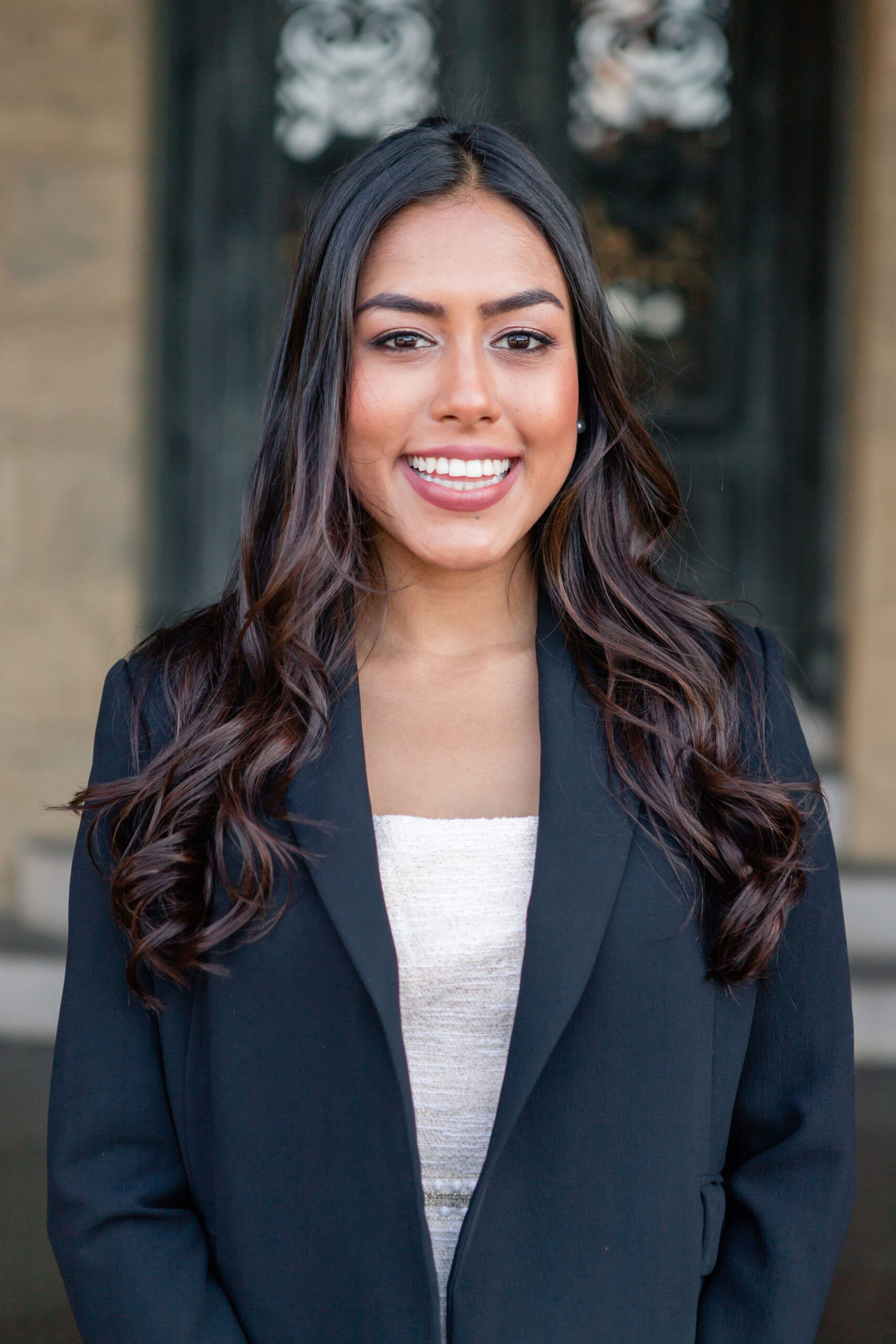By Harvard Law School Student Tashrima Hossain ’26
When I was eight, Hurricane Katrina ravaged my community and pushed my family into homelessness. A decade later, I moved to San Francisco and was struck by how the same housing challenges plagued a city seemingly worlds apart from my hometown. In the years after college, I sought housing justice through policy advocacy at the city and state levels. But something was missing. Though I was championing initiatives to ensure access to affordable and quality housing, I had limited contact with families like my own, individuals like my eight-year-old self — the community members who would be most affected by our proposed housing measures. So, I came to law school to learn how to fix our faulty housing systems the right way.

As a 1L, I found myself lost in the minutiae of contract doctrine and statutory interpretation, with hardly a moment to contemplate what such learnings might mean for housing. Things snapped back into focus when I joined the Legal Services Center’s Housing Law Clinic last semester. At the Housing Justice for Survivors Project, we represent tenants who face housing instability due to domestic violence, sexual assault, or stalking. Our work lies at the nexus between providing direct legal services to housing insecure survivors in Boston and effecting systems change through class actions and cross-sectoral advocacy. In short, we’re fixing faulty housing systems, but our fixes are grounded in the lessons we learn from our clients.
Our direct legal services work is impactful. One of our clients faced eviction based on false allegations by her abuser; she later defaulted in her housing case because she was in another part of the courthouse in search of a restraining order at the time of her trial. My clinical instructor, Julia Devanthéry, and other students on the case before me worked tirelessly to get the eviction dismissed. Even after escaping her relationship, our client still had no choice but to sleep with a baseball bat under her bed. This was because she’d found signs that her abuser had continued to stalk her, entering her home when she wasn’t there just to unnerve her. For her, we sought an emergency transfer to a safe apartment.
Another client was threatened with eviction from a unit she had fled due to fear of a former partner. Even though she moved out, the former landlord was threatening her family with an eviction that would wreck her housing record and future housing prospects. We worked to prevent the eviction, preserve her housing record, and create space for her to move on from her abusive relationship in safety.
At the Housing Law Clinic, we’re constantly learning from our clients. Specifically, how can we rectify the broader systems underpinning these individual injustices? One tool to resolve these challenges has been monitoring the practices of Boston’s biggest evictors. When it comes to the disproportionate impact of eviction on women of color, often moms, we are employing class actions to protect the clients who are most vulnerable in our housing ecosystem. Beyond litigation, we are working to secure buy-in from affordable housing partners on efforts for sweeping policy change.
During our weekly check-ins, Julia reminds me to reflect on how my work with individual clients might unearth cracks within our housing systems. After one client received a notice-to-quit without notice of her rights under the Violence Against Women Act (a failure to inform survivors of crucial protections), we looked for ways to preserve her housing while educating the court and landlord about the necessity of this notice. When we discovered that the Boston Housing Authority’s domestic violence priority for emergency transfers excludes many survivors living in unsafe conditions, we started working on systemic advocacy to improve the priority definition. I am now drafting a letter to the housing authority outlining how the gaps in their policy harm vulnerable housing applicants. In light of the Healey administration’s cap on emergency shelter housing last fall, we are working with lawyers, nonprofits, and government leaders to brainstorm solutions to the shelter crisis in Boston. Through our clinic work, we advocate for individual clients in crisis, but we also take on powerful actors in the city’s housing ecosystem — including abusive landlords, the court, and government agencies.
Too often, we attempt to fix our faulty housing systems the wrong way. Either we promote wide-reaching solutions that aren’t grounded in the experiences of impacted tenants and survivors, or we serve an individual client without thinking about the bigger picture. Through the Housing Law Clinic at the Legal Services Center, I have begun to understand that any systemic change docket must be grounded in the needs of the community it seeks to serve. As I look ahead to my third semester with the Housing Law Clinic (with plans to continue through the remainder of law school), I hope I’m one step closer to fixing our faulty housing systems the right way.
*Client’s name has been changed for confidentiality.
